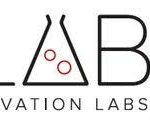What is Beauty Private Labeling?
Beauty private labeling involves the practice of branding and selling cosmetic and skincare products that are manufactured by a third-party supplier. In this business model, a company chooses existing formulations or customizes them to create a unique product line under its own brand. The private label provider handles the manufacturing process, including formulation, packaging, and quality control, while the brand owner focuses on marketing, branding, and distribution of its product. Beauty private labeling offers businesses the opportunity to enter the beauty industry with minimal upfront costs, as they leverage existing formulations and manufacturing capabilities. This approach allows for flexibility in product customization, helping brands establish a unique identity in a competitive market. Overall, beauty private labeling provides a strategic pathway for companies to bring high-quality beauty products to market under their own brand.
What is Beauty Contract Manufacturing?
Beauty contract manufacturing is a collaborative arrangement in which a cosmetic or skincare brand outsources production to a specialized manufacturer. The brand provides specifications, such as formulations and packaging details, while the manufacturing partner handles production responsibilities. This allows beauty brands to concentrate on marketing and distribution while ensuring quality and efficiency in the full manufacturing process. With scalability, flexibility, and industry expertise, beauty contract manufacturing enables brands to meet market demands without extensive in-house production facilities. It serves as a strategic approach for companies seeking efficient market entry with high-quality manufacturing standards.
What is the size of the beauty market?
The global beauty market is anticipated to continue its growth trajectory, with projections indicating it will reach $667.2 billion in 2025, $691.4 billion in 2026, and surpass $800 billion by 2028, marking a substantial increase of $186.4 billion or 33.87% from 2018 to 2028, with an average annual growth rate of 3%. Personal care products are expected to generate the highest revenue, reaching $282.8 billion in 2024, followed by skincare at $186.6 billion and cosmetics at $108.4 billion. The United States currently leads the global beauty market, with China and Japan following closely. By 2027, China’s beauty market is projected to reach $96 billion, while North America’s is expected to reach $114 billion. However, emerging regions like the Middle East and India are showing potential as growth markets for specific categories and price tiers. The luxury beauty segment also holds promise, with the potential to double from $20 billion to $40 billion by 2027.
What are the most common beauty products to be private labeled?
The most common beauty products often private labeled include cosmetics such as eyeshadow palettes, lipsticks, foundations, blushes, highlighters, and makeup brushes; skincare items like facial cleansers, moisturizers, serums, face masks, and toners; hair care products such as shampoos, conditioners, hair masks, and hair oils; and personal care items like body lotions, body washes, and hand creams. Major retailers like CVS, Target, and Amazon have their own private label beauty brands, often manufactured by third-party private label companies. Well-known makeup brands like Morphe, Violet Voss, and Urban Decay may also use private label manufacturers for some or all of their products, with the same formulas and products shared across multiple private label brands under different names. Private labeling enables brands to swiftly introduce new beauty products to market without extensive research, development, and manufacturing capabilities, offering flexibility and cost savings, albeit with limitations on formulas, shades, and packaging offered by the private label supplier.
Top Benefits of Hiring a Beauty Contract & Private Label Manufacturer
Collaborating with a beauty contract and private label manufacturer offers cosmetic and skincare brands several benefits. It allows companies to access the manufacturer’s expertise and specialized facilities, securing high-quality production without extensive in-house requirements. Both contract and private label manufacturing provide scalability, allowing brands to adapt efficiently to market demands. Moreover, this approach minimizes research and development costs, as brands can utilize existing formulations or customize their products for a unique identity. Outsourcing production enables brands to focus on key competencies like marketing and distribution, streamlining their business operations. In essence, partnering with a beauty contract and private label manufacturer proves to be a strategic and financially beneficial solution for companies entering the beauty industry with a commitment to quality and flexibility.











-150x150.jpg)